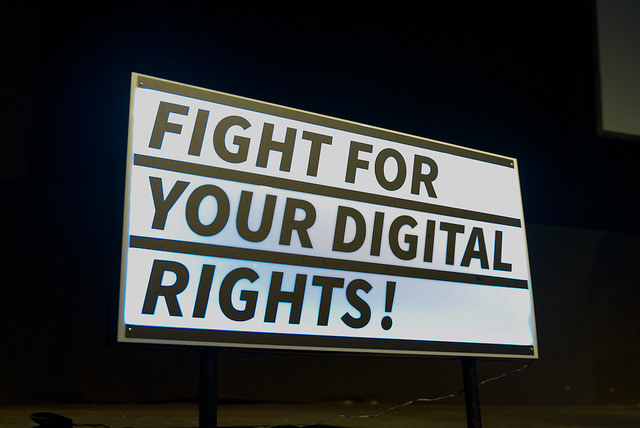Speaker: Elektra Wagenrad
More frequency spectrum with better propagation properties for everyone. Serious media use does not work without WiFi or LAN cable and also free and open wireless community infrastructure like Freifunk would be hardly conceivable without WLAN. 3G and 4G is good in between WiFi and LAN access just for frugal internet use.
The digital dividend through the digitization of terrestrial TV and other analog services offers an important opportunity for better coverage and more capacity and bandwidth for all. Unfortunately, the UHF-TV spectrum is currently auctioned off to the big telecommunications companies. As a result, broadband usage remains expensive. The UHF-band mesh network of the „Freifunk“ open wireless radio networks community in Berlin is an example of a first step in a different direction.
We (read: the public) can have more spectrum with better propagation properties!
There are ways to improve the digital broadband coverage: Due to the switch of terrestrial analog TV to DVB-T, now a major part of the UHF TV frequency spectrum is unused – the digital dividend. This frequency range has substantially better properties than the currently used WiFi radio channels at 2.4 GHz and 5 GHz: objects such as trees and shrubs attenuate the signal much less. It is much easier to provide a broad range WLAN coverage in that part of the frequency spectrum.
Much of the TV band is soon to be auctioned to the telco industry or has already been auctioned. We always hear from politicians that the public purse has benefited enormously from the revenues from spectrum auctions. This warm rain for the Treasury is going to be financed by us, the Internet users and Telco customers, by the extra expense for broadband usage that we are spending. In effect, such spectrum auctions are a hidden tax for wireless broadband access.
But there might be a better way: A dedicated part of the currently unused TV channels could also be dedicated to unlicensed, digital broadband operation with WiFi. Everyone involved would benefit, including the mobile phone operators, because large telecommunications companies are already using unlicensed Wi-Fi to do „mobile offloading“: Your DSL-WiFi router at home might already provide a commercial hotspot for the telecommunications company you are renting the DSL line from, in order to serve broadband to their customers on the street in front of your flat. The resulting cost savings for the large telcos are estimated to be over 80 billion in 2015.
